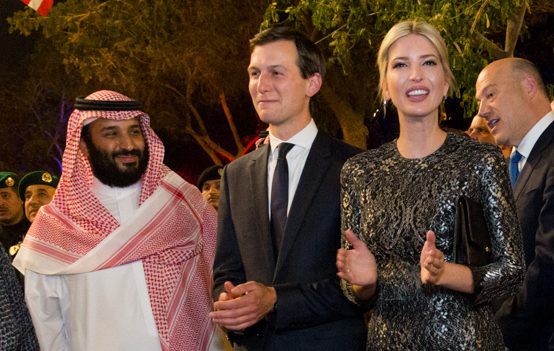The War on Yemen and the Credulous Western Embrace of Mohammed bin Salman

David Ignatius ably writes down whatever Mohammed bin Salman (MbS) tells him in a new column. This is the only mention that the war on Yemen receives:
He described ambitious plans to mobilize Yemeni tribes against the Houthis and their Iranian backers in Yemen, a war that has dragged on longer than the Saudis hoped.
Whenever MbS is interviewed by Western reporters and pundits, the subject of Yemen comes up rarely and the countless crimes committed by the Saudis and their allies are never mentioned. It is bad enough that one of the architects of a disastrous war supported by our government is never forced to answer for the war crimes committed by his military and other coalition forces, but it is even worse when the interviewer makes no attempt to put the crown prince’s statements in context. Readers should know that MbS is responsible for a war that has plunged another country into the world’s worst humanitarian crisis, and they should be aware that the Saudi-led coalition has committed numerous war crimes by bombing civilian targets and inflicts cruel collective punishment on millions of people through its blockade. Given the paltry coverage that Yemen usually receives in the U.S., most of Ignatius’ readers probably don’t know this. If MbS’ interlocutors aren’t willing to challenge him about this directly, they ought to be bringing it up in whatever they end up writing about the conversation. The war on Yemen hasn’t just “dragged on longer than the Saudis hoped.” It has been a complete failure in achieving any of its stated goals, and that failure reflects very poorly on the unqualified, reckless defense minister (i.e., MbS) who has overseen the debacle.
It is possible that there could be some news value in uncritically restating the things that a foreign leader says to you, but there doesn’t seem to be any of that here. MbS spins his power grabs and reckless foreign policy decisions to Ignatius, and the columnist gamely relays that spin to us. On the “anti-corruption putsch,” Ignatius tells us that MbS told him that “shock therapy” was required. The fact that MbS’s arbitrary shakedown has frightened foreign investors and undermined his own economic agenda goes unmentioned. We are later informed that the “crown prince said he had been unfairly criticized for pressuring Lebanese Prime Minister Saad Hariri to resign,” but of course he would say that.
Treating Saudi royals with kid gloves is nothing new in American media, but I have been struck by how positive the coverage of Mohammed bin Salman has been when his record has been almost entirely destructive and destabilizing. Were he not the Saudi heir and already de facto ruler of a U.S. client state, he could not hope to buy the friendly coverage that he is freely given in a number of American publications. That would be embarrassing enough at any time, but when the authoritarian ruler in question is also presiding over one of the great crimes of the century it is inexcusable.